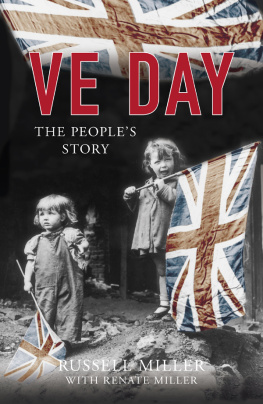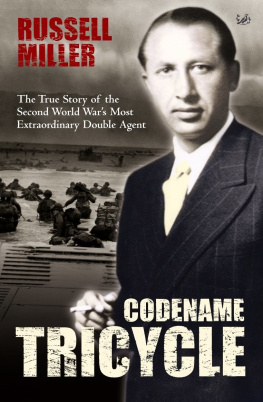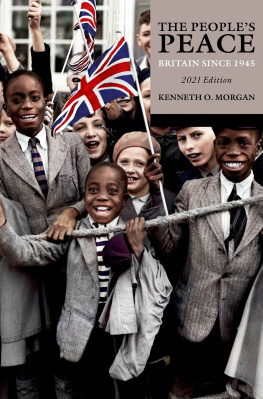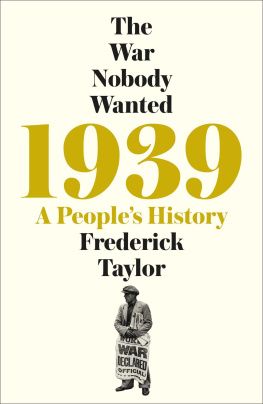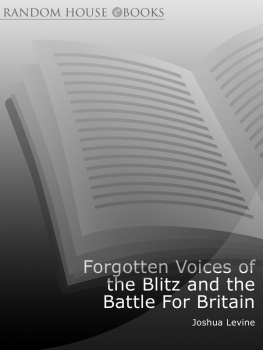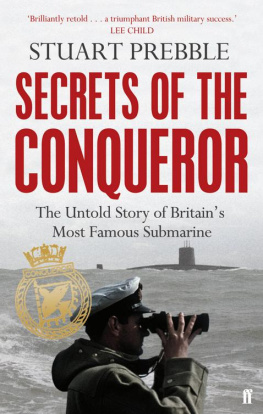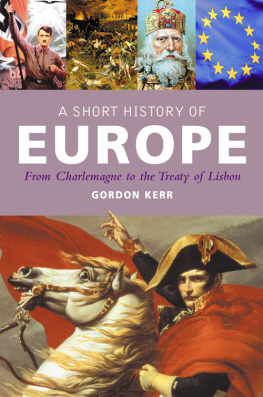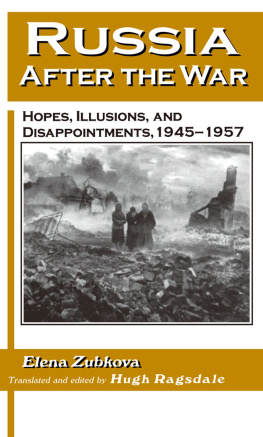Contents
Guide

About the Author
Russell Miller is the author of Nothing Less Than Victory, The Oral History of D-Day; Magnum, Fifty Years at the Front Line of History; Behind the Lines, The Oral History of Special Operations in World War Two; and Codename Tricycle, The True Story of the Second World Wars Most Extraordinary Double Agent.

Let war yield to peace, laurels to paeans
Cicero (106-43 BC)
Cover illustrations: Front: courtesy of the Imperial War Museum (Image no. HU49414); Back: courtesy of Steve Nicholas.
First published 1995 by Michael Joseph Ltd
This paperback edition published 2020
The History Press
97 St Georges Place, Cheltenham,
Gloucestershire, GL50 3QB
www.thehistorypress.co.uk
Russell Miller, 1995, 2007, 2020
The right of Russell Miller to be identified as the Author of this work has been asserted in accordance with the Copyright, Designs and Patents Act 1988.
All rights reserved. No part of this book may be reprinted or reproduced or utilised in any form or by any electronic, mechanical or other means, now known or hereafter invented, including photocopying and recording, or in any information storage or retrieval system, without the permission in writing from the Publishers.
British Library Cataloguing in Publication Data.
A catalogue record for this book is available from the British Library.
ISBN 978 0 7509 9571 9
Typesetting and origination by The History Press
Printed in Great Britain

eBook converted by Geethik Technologies
Contents
Illustrations
(Copyright holders are indicated in italics)
Permissions
The author and publishers would like to thank the following for permission to reproduce copyright material: British Broadcasting Corporation for extracts from the BBC Radio Collection tapes, Victory in Europe; the Trustees of the Mass Observation Archive, University of Sussex for Mass Observation Archive material reproduced by permission of Curtis Brown Group Ltd, London; Imperial War Museum for material from their Sound Archives; Falling Wall Press for Nellas Last War: A Mothers Last Diary by Richard Broad and Susie Fleming; Heinemann Ltd for Three Years with Eisenhower: The Personal Diary of Captain Harry C. Butcher; Little Brown Ltd for Will the Real Ian Carmichael by Ian Carmichael; S. Fischer Verlag GmbH for Zwischenbilanz by Guenter de Bruyn; Hodder Headline Ltd for Richard Dimbleby by Jonathan Dimbleby; HMSO (Crown copyright is reproduced with the permission of the Controller of HMSO) for History of the Second World War, Civil Affairs and Military Government in North West Europe 194446 by F.S.V. Donnison; Gollancz Ltd for Paris Journal 194465 by Janet Flanner; Macmillan Publishing Co., Inc. for The War 193945 by Desmond Flower and James Reeves; Virona Publishing for Helga by Helga Gerhardi; Andr Deutsch Ltd for The Sheltered Days: Growing Up in the War by Derek Lambert; Hutchinson for When We Won the War and How We Lived Then by Norman Longmate; Chatto and Windus Ltd for The Home Front by Norman Longmate; Granada Ltd for I Play as I Please by Humphrey Lyttelton; HarperCollins Ltd for The Memoirs of Field Marshal the Viscount Montgomery of Alamein KG; the Estate of Alan Moorehead for Eclipse by Alan Moorehead; Hamish Hamilton Ltd for The Moons a Balloon by David Niven; Stephen Schimanski and Henry Treece (eds) for Leaves in the Storm: A Book of Diaries; and Heinemann Ltd for Wartime Women edited by Dorothy Sheridan.
(For specific reference to the above material please refer to the Notes and Bibliography. Every effort has been made to trace or contact copyright holders. The publishers will be glad to rectify, in future editions, any amendments or omissions brought to their notice.)
Acknowledgements
One of the problems about writing an oral history of VE Day is that 50 years have passed and memories are fading. It was not a difficulty with our oral history of D Day because many of the veterans who took part in such a dramatic moment of history had an extraordinarily clear and detailed recall of everything that happened to them on that day. Being in Normandy on 6 June 1944 was something you did not forget.
VE Day is different, as we rapidly discovered. Denis Norden, for example, could remember nothing except being maudlin in a tent on Lneberg Heath. Lord Hailsham, perhaps understandably, could only recall that his son, Douglas, was christened in the crypt at the House of Commons on that day. Sir John Mills said he was too young to remember anything and Donald Sinden explained he was so busy entertaining the troops he didnt even know it was VE Day! Sir Robin Days one memory is of being on a troopship and being allowed a single beer, a rare treat, to celebrate. Raymond Baxter, who was a Spitfire pilot, recalls giving joy rides to WAAFs in a little Auster; Sir Hugh Casson only remembers leaving a Ministry of Planning conference in Edinburgh and finding all the street lamps on for the first time in years. David Kossof vaguely recalls a prolonged knees-up in Lincolns Inn Fields; Lord Carrington, with his battalion somewhere near Freiburg, claimed VE Day was completely unexceptional, just another working day.
It is the fallibility of memory that makes the Mass Observation archive at the University of Sussex such an invaluable resource for any author embarked on a project such as this. Mass Observation was set up in 1937, by the poet and journalist Charles Madge and the anthropologist Tom Harrisson, to record the voice of the people. At the time of VE Day its volunteer observers were out and about recording extraordinarily detailed contemporary accounts of what was happening, what people were saying and thinking. Unfortunately, a condition of being able to make use of the archive is that all contributors remain anonymous, but the authentic colour they provide is irresistible.
The staff at our local library in High Wycombe considered it a personal challenge to seek out every one of the multitude of books we requested and proved, once again, that our library service is second to none and needs to be protected against philistine governments looking for budget cuts.
We would also like to thank the courteous and helpful staff of the Sound Archives and the Department of Documents at the Imperial War Museum; the London Library, particularly Joy Eldridge of Mass Observation; Martin Tapsell and staff of the Inter-Library Lending Department of Bucks County Library; members of the National Federation of Womens Institutes, the Royal British Legion, the War Widows Association and the Burma Star Association. A special word of thanks, too, to John Frost, who manages to keep track of his historic collection of newspapers in a small suburban house in north London and who also wrote a fascinating letter to his mother from Germany on VE Day.
Finally, we must express our gratitude to all those who offered up their diaries, letters and memories and for everyone who agreed to be interviewed. Not everyone could be included in this book, but all the material will be lodged in a suitable archive for the benefit of those people who will undoubtedly be writing about the centenary of VE Day in the year 2045.

